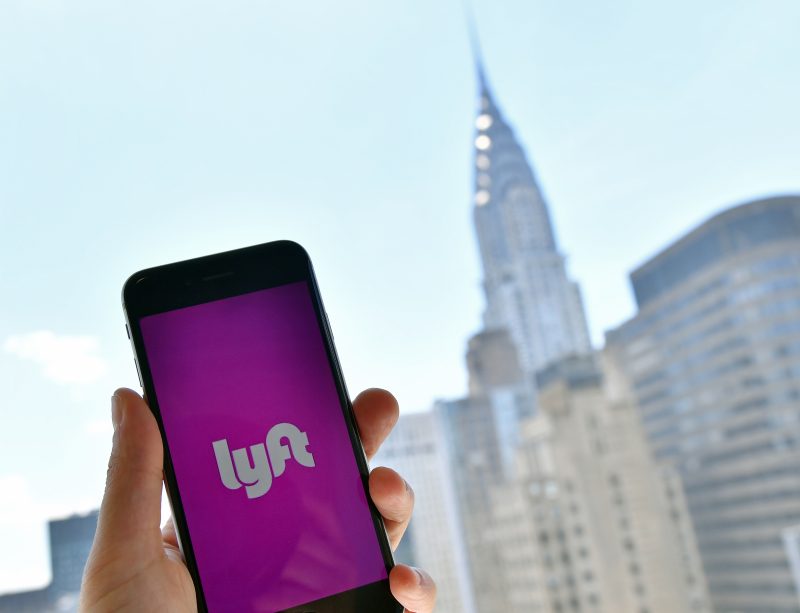Lyft revs up for an IPO seeking to raise $2.4bn
Lyft could be valued at more than $20 billion under the terms of the initial public offering (ANGELA WEISS)
Washington (AFP) – Lyft said Monday it would seek to raise as much as $2.4 billion in its public share offering, in the first major listing in the fast-growing ride-hailing sector.
The San Francisco startup could be valued at more than $20 billion under the terms of the initial public offering unveiled Monday, setting a price per share of between $62 and $68.
Lyft’s launch is the first of what is expected to be a wave of IPOs from venture-backed startups worth more than $1 billion, known in Silicon Valley as “unicorns.”
Lyft’s listing comes ahead of a larger offering expected from Uber, which has a valuation of some $70 billion.
Others expected to move to Wall Street this year include the business collaboration firm Slack, visual discovery startup Pinterest and possibly the big data group Palantir.
Lyft is proposing to sell 30.8 million shares with an underwriters option for an additional 4.6 million, with shares on the Nasdaq listed under the symbol “LYFT.”
No date was given for the listing, but the Wall Street Journal said Lyft shares could begin trading by the end of next week, when a final price will be set.
Lyft and Uber are among the most prominent players in the “sharing economy,” representing a trend that moves away from ownership to on-demand services.
The growth in these services is eroding sentiment for ownership of homes, cars and other goods, and is also shifting the concept of labor and employment, sparking fierce debates on whether the change is good or bad.
Spending for “on demand” on services such as Uber and Airbnb and other digital platforms rose 58 percent in 2017 to $75.7 billion in the US, with more than 41 million consumers participating, according to a survey by Rockbridge Associates.
– Heavy losses –
According to documents filed earlier, Lyft lost $911 million on $2.2 billion in 2018 revenues. The documents show revenues grew sharply from $343 million in 2016, but losses widened as well.
Lyft said in its Securities and Exchange Commission filing it has completed over one billion rides since its inception in 2012 and had bookings last year of $8.1 billion.
It has a 39 percent share of the US rideshare market, according to a survey cited in the filing. Lyft has also begun to move into other kinds of short-range transportation including bike- and scooter-sharing.
Lyft is also betting on adoption of autonomous driving, claiming that self-driving taxis and rideshare services will help reshape urban landscapes by eliminating the need for private vehicles.
“We believe that cities should be built for people, not cars,” Lyft says in its IPO filing.
“Mass car ownership strains our cities and reduces the very freedom that cars once provided.”
Both Lyft and Uber have faced criticism for disrupting traditional taxi services and for using the model of drivers as independent contractors.
The rideshare firms claim that most drivers prefer the flexible work arrangement, even if it offers fewer benefits and less job security.
Lyft said it will seek to maintain its policy that drivers are independent contractors while noting that any legal challenge to this could have “adverse” consequences.
For the IPO, Lyft said some shares would be reserved for drivers who have completed at least 10,000 trips using the platform.
The company will offer a bonus of $1,000 to $10,000 to eligible drivers by March 19 that may be used to buy shares at the offering price, although they may opt to pocket the cash.
With a dual-class share structure enabling founders to maintain control, chief executive Logan Green will have some 29 percent of voting power and co-founder John Zimmer 19 percent after the IPO.
Ross Gerber of the investment firm Gerber Kawasaki cautioned against getting too excited on Lyft.
“Another very overpriced IPO which gives public shareholders no say,” Gerber said in a tweet. “Do not touch this dog. It will rally and then start the long road down.”
Disclaimer: This story is published from a syndicated feed. Siliconeer does not assume any liability for the above story. Validity of the above story is for 7 Days from original date of publishing. Content copyright AFP.


